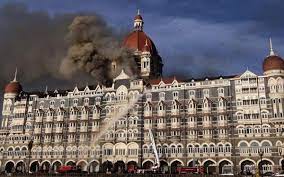Keep up the pressure: On the conviction of a Mumbai attacks handler in Pakistan
India must seek the extradition of Sajid Mir for his role in the Mumbai attacks
Reports in Pakistan’s newspapers, that a Pakistani court has convicted Sajid Majeed Mir, one of the men who planned the Mumbai 26/11 attacks, on terror financing charges, are welcome proof that the search for each of the masterminds must never be given-up on. In the case of Mir, Pakistan’s security agencies had gone so far as to falsely declare him “dead”. He was reportedly sentenced to more than 15 years in jail and is serving his term in a Lahore jail. Mir, the LeT’s former deputy chief of “international operations”, has been wanted for his role in recruitment for the 26/11 attacks, being the handler for David Headley, who carried out the reconnaissance for the LeT during several visits to India, and for being in the Karachi “control room” during the Mumbai siege. Headley named Mir in his deposition to a U.S. court, after he was Given a “ plea bargain ” by the U.S. government, as well as in depositions via video link for the 26/11 trial in India. Mir is also wanted for LeT conspiracies to attack a Danish newspaper accused of publishing blasphemous cartoons and bomb a nuclear installation in Australia. He was also convicted by a French court for recruiting LeT operatives, and is believed to have also recruited terror- volunteers in the “Virginia Paintball Jihad” case in the U.S. The timing of Mir’s conviction appears to be linked to the final stages of Pakistan’s grey listing at the FATF this June, that voted to allow on-site visits in Pakistan with a view to de-listing it in the next few months. While Mir is not actually on the UN Security Council’s 1267 list of terror-designated individuals that the FATF is mandated to pursue, the West has frequently brought his name up at FATF proceedings in demanding that Pakistan successfully convict leaders of terrorist groups.
If Mir is in fact behind bars, New Delhi must move quickly to demand his extradition to stand for trial in India. Admittedly, this is a virtually impossible task, given the poor state of bilateral ties. New Delhi must also rectify the error in not pursuing Mir’s addition to the UNSC list thus far, and launch a concerted international effort for Mir to be prosecuted for the number of terror attacks he has been involved in — not just for terror financing. As-with Hafiz Saeed, Zaki-ur-Rahman Lakhvi and other LeT members, it is necessary to keep the spotlight on Mir, given the predilection of Pakistan’s legal authorities for reversing convictions and reducing the sentencing of terrorists once the heat from international agencies reduces. This will be particularly important, especially as Pakistan is expected to receive a full reprieve at the FATF in October, and it must be made clear that the Government will continue to pursue the legal process against each of the men behind the Mumbai attacks, until they are brought to justice.
